|
3 Comments
By Hadas Aron
I was recently included in this NYT piece on the comparative politics view on the future of democracy in the US. I argued, as we previously wrote here, that the comparison between the US and weak democracies is not helpful, as American institutions are resilient, and President Trump's actions have been challenged at every step. We will shortly have another post elaborating on this issue and raising other more significant challenges to US democracy. By Hadas Aron & Emily Holland Image Credit: BBC Our new(ish) project on populism and foreign policy aims to find out the degree to which populists have a significant influence on foreign policy. Do populists make the radical changes their rhetoric would suggest, or is it simply that the system is changing (due to structural forces like globalization, automation, and the decline of American hegemony) and everyone, populists and non-populists alike, are simply adjusting to this transformation? We will be writing about issues related to this project here on the blog and in other outlets in the coming weeks. One interesting finding resulting from our forthcoming paper on populism and foreign policy is that in the arena of international economic policy, populists target specific economic programs that were adopted in the 1990s under the Washington Consensus. The Washington Consensus, a prescribed set of economic policies that the IMF and other international institutions imposed on developing countries, included privatization, reduction of trade barriers and barriers to investment, tight fiscal policy, and deregulation. Populist foreign policy is often characterized as protectionist, but in fact populists in government target privatization and deregulation more than any other aspect of liberal economies. Hungary, Argentina, and Bolivia all nationalized their pension systems and restricted foreign ownership of private land under populist governments. Argentina expropriated large components of its energy sector, and Bolivia nationalized it altogether. Populists target privatization and related policies for two reasons. First, expropriation or nationalization of different sectors can be profitable for the government-- in the short term. Populists use this revenue to secure their popularity through programmatic or clientelistic transfers to certain sections of society. In some cases they also buy the loyalty of influential political or business stakeholders. This revenue is also needed because, as demonstrated by several Latin American cases, populists tend to inflate state budgets-- against Washington Consensus directives. In Europe, states have more budgetary constraints, but newer EU members likw Hungary and Poland are able to use EU transfers as extra budgetary funds to pursue short-term goals. Second, for many populists, reversing privatization can garner political capital. The privatizations of the 1990s were, and continue to be, controversial at best. They are perceived by many as a source of economic insecurity, inequality, and the breakdown of social solidarity. Many people in relatively new democracies view privatization as an imperialist policy forced upon their states by international bureaucrats representing the interests of great powers. Politicians who implemented these policies were often later characterized as collaborators and paid a political price. Our research supports the findings of scholars like Dani Rodrik, who broadly view populism as a response to globalization. We, however, narrow in on specific 1990s era reforms as the focal point of popular discontent and populist mobilization. One implication of this is that populism will be much more politically salient in third wave democracies that went through a process of enforced liberalization. Scholars have long pointed out the devastating consequences of “shock therapy” liberalization programs in Russia and others. In Russia, the most prominent example, output fell by half and unemployment rose from 2% to over 40% ahead of the 1998 Russian financial crisis and ruble collapse. Pensioners’ life savings were wiped out for the second time in that decade, and the result of the two-decades long transition was a huge increase in both poverty and inequality, as the benefits of liberalization went to select few--the oligarchs. The result of this sudden and profound economic insecurity is often ignored by the West, but has serious implications for today’s political realities. Russia, as well as many other states who underwent Western-led liberalization processes in the 1990s, today face issues including demographic crisis due to mass emigration and significantly reduced life expectancy, the breakdown of families and social structures, and finally a devastating political shift. But even in societies that did not experience the 1990s as an outright disaster, some still view the period as traumatic. Those of us who grew up in (more or less) Western countries in the 1990s were indirectly influenced by concepts including the “end of history”, the notion of the victory of liberalism and its associated global benefits. Indeed, liberation from oppressive regimes around the globe was an incredible 1990s phenomenon, as was its music. This week, as we celebrate the 30th anniversary of the fall of the Berlin Wall, it is especially important to remember the 1990s as an important moment for global democratic progress. But, as discussed above, it was not a rosy period for everyone, many former East Germans included. Left leaning liberals often view the early 1960s as a utopian age in Europe. Social democracy was thriving, welfare states were elaborate, traditional political parties and unions were strong, and politics was consensual. But of course, true consensus hardly exists in politics. In the 1950s and 60s this utopia only applied to privileged groups - women and minorities, of course, were excluded from the bargain. Similarly, the liberal 1990s utopia that many of us grew up in, was to a large extent a specifically Western condition (more open, but still not entirely inclusive to women and minorities). Many of the developing countries experiencing populism today had an entirely different 1990s experience, one that has been glossed over by the liberal tradition. Their grievances with the Washington Consensus and the sometimes devastating consequences of its associated policies is a narrative that is becoming increasingly prominent today. Had the pleasure to appear on Uli Baer's wonderful podcast Think About It, for a very interesting conversation on populism and academic freedom.
You can listen to it here! How Democracies Die, a book by Steven Levitsky and Daniel Ziblatt, has been garnering much attention in recent weeks. The book warns about the possibility of a slide into American authoritarianism and draws lessons from the collapse of democracies around the world. This new release is part of an ongoing debate on whether Donald Trump is a grave danger to American democracy. Levitsky and Ziblatt are noted political scientists, with decades of important scholarship on democratic and authoritarian regimes. While the global review of cases of democratic decline is thorough and accurate, the comparisons they draw with the American case is part of an increasingly hysterical discourse on American politics by liberal commentators. The cases Levitsky and Ziblatt employ shed little light on current developments in American politics, and they neglect to identify the crucial international shifts leading to democratic decline in vulnerable countries. The United States is a long-standing, consolidated democracy and is not in immediate danger of collapse. However, pointing out the global climate of democratic decline and accurately identifying its causes is an important task.
Read more at: http://blogs.lse.ac.uk/usappblog/2018/02/08/we-dont-know-how-democracies-die/ |

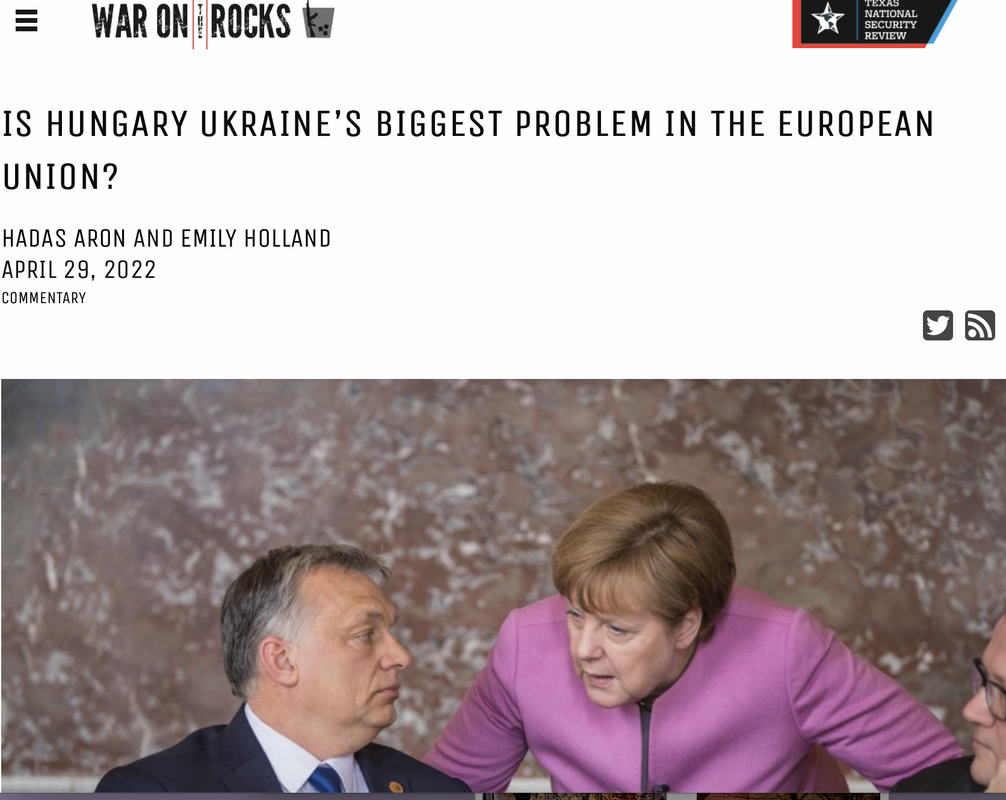
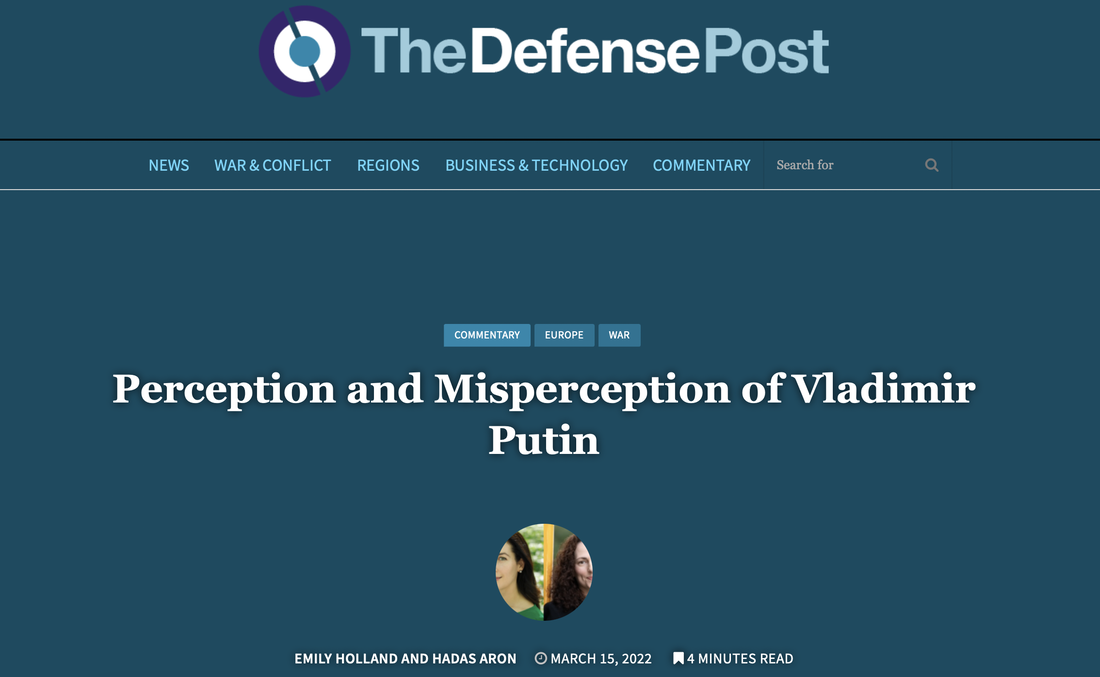
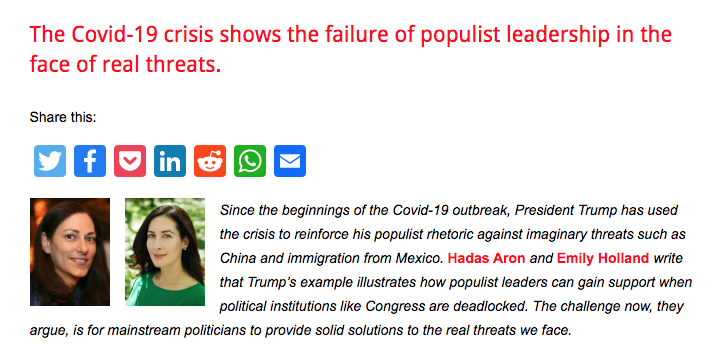
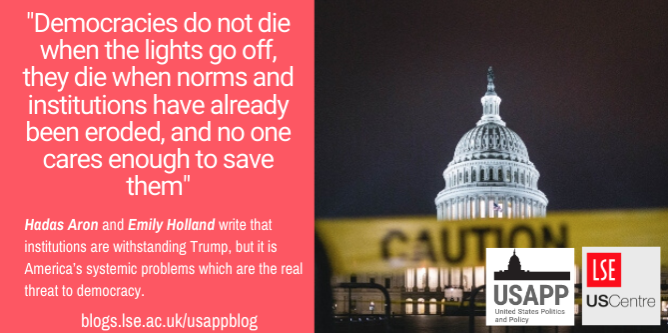
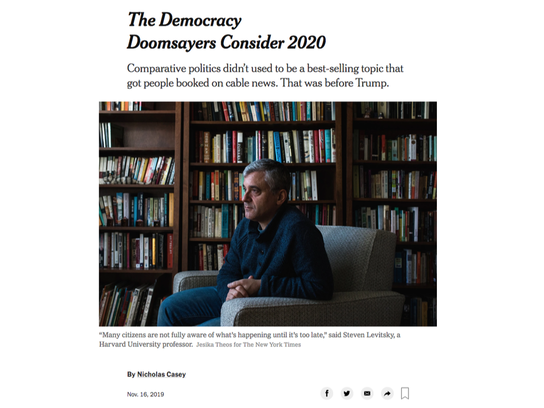

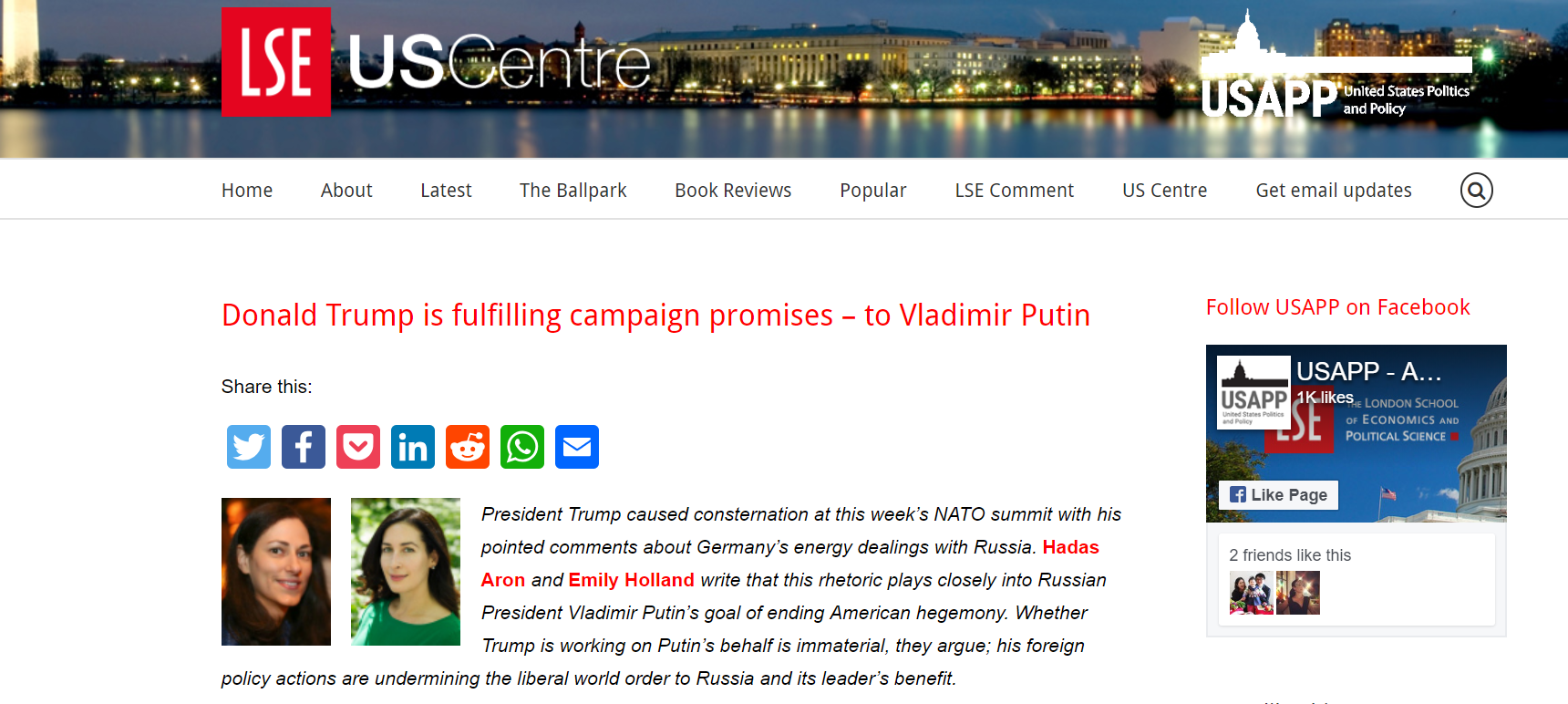
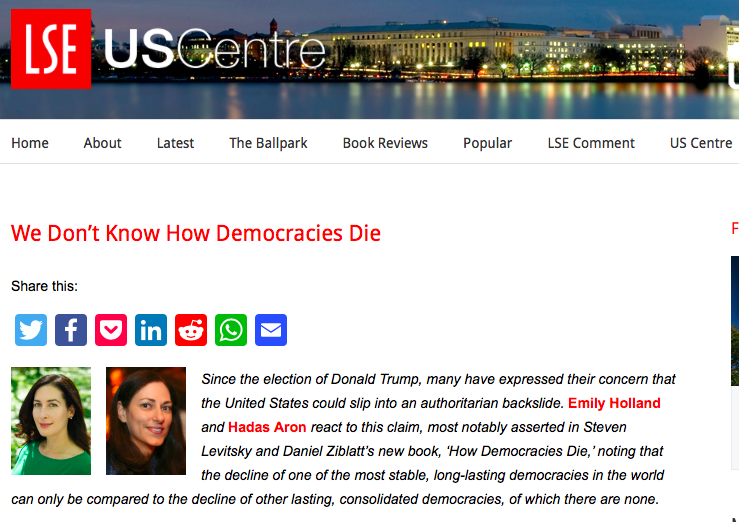
 RSS Feed
RSS Feed